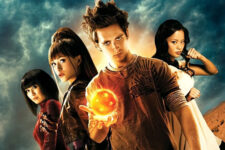
Let’s start with the obvious: Blade Runner isn’t just a movie—it’s a vibe. It’s not the kind of film you casually toss on while folding laundry. It demands attention, patience, and a willingness to accept that some things might never make total sense. At 25, you’re probably mesmerized by the neon-drenched dystopia and existential monologues. At 45, you might find yourself preoccupied with entirely different questions, like why Deckard’s apartment doesn’t have better lighting or why replicants seem more human than the actual humans. This is a movie that shifts as you shift.
Watching Blade Runner isn’t just a static experience. It’s a conversation between you and your evolving sense of self. And depending on where you are in life, that conversation can feel like a late-night philosophy seminar or a midlife crisis in a trench coat.
At 25: The Aesthetic Overload
At 25, Blade Runner feels like the coolest movie ever made. And maybe it is. It’s cyberpunk in its purest form—a moody, rain-soaked hellscape where people wear trench coats indoors and say cryptic things like, “It’s too bad she won’t live! But then again, who does?” You don’t have to fully understand it; you just have to feel it.
At this stage, you’re probably in love with the movie’s surface: the visuals, the music, the vibe. Ridley Scott’s Los Angeles feels like a place you’d want to visit—if only to drink whiskey in a dimly lit bar where everyone is smoking (even though you don’t smoke). The questions about humanity and mortality? Sure, they’re interesting, but they feel abstract. At 25, death is theoretical. You’re more concerned with how Deckard’s gun is somehow louder than his voice.
At 45: The Existential Gut Punch

Fast forward 20 years, and Blade Runner feels like a different movie entirely. By now, you’ve likely wrestled with some of the big questions it asks: What does it mean to be alive? What makes us human? Is it memories? Is it empathy? Is it the ability to play melancholy synthesizer solos in an abandoned apartment? These aren’t just philosophical musings anymore—they’re personal.
At 45, you see Roy Batty’s “Tears in Rain” speech for what it really is: not just a poetic farewell, but a reminder of how fleeting everything is. You’re no longer captivated by the city’s neon glow; you’re haunted by the pervasive sense of decay. The Tyrell Corporation’s motto, “More Human Than Human,” hits differently too—it’s not a corporate slogan; it’s a critique of how detached people have become.
And then there’s Deckard. At 25, you might have thought of him as a reluctant hero. At 45, he seems more like a burnt-out guy who never quite figured things out. He’s not on a noble quest; he’s just trying to survive in a world that’s crumbling around him. Sound familiar?
The Replicants: Heroes or Villains?
Here’s the thing about Blade Runner: the replicants start to feel more relatable as you get older. At 25, you might think of them as tragic villains. They’re fugitives, sure, but they’re also kind of terrifying. Roy Batty is charismatic but unhinged. You understand why Deckard is chasing them.
At 45, though, you see them differently. They’re not just machines rebelling against their creators; they’re people desperate for more time. Roy’s rage isn’t scary—it’s heartbreaking. Pris isn’t a femme fatale—she’s a victim of a system that treats her as disposable. Even Rachel, with her implanted memories, becomes a symbol of how fragile identity can be. The replicants aren’t the antagonists of the story anymore; they’re its emotional core.
The Big Shift: Mortality
The biggest difference between watching Blade Runner at 25 and 45 comes down to one word: mortality. At 25, the movie’s musings about life and death feel like intellectual exercises. By 45, they hit closer to home. You’ve lost people. You’ve seen things you wish you hadn’t. Roy’s lament—“All those moments will be lost in time, like tears in rain”—stops being a beautiful line and starts feeling like a personal truth.
And it’s not just about death—it’s about the passage of time. Blade Runner is drenched in nostalgia, but not the comforting kind. It’s the kind that makes you realize how much has slipped through your fingers. The world of 2019 (or, you know, Ridley Scott’s version of it) isn’t futuristic anymore—it’s retro. Watching Blade Runner at 45 feels less like looking forward and more like looking back.
The Endless Rewatch
Here’s the genius of Blade Runner: it evolves with you. At 25, it’s a visual masterpiece with philosophical undertones. At 45, it’s a reflection of your own fears, regrets, and hopes. And at 65? Who knows—maybe you’ll see it as a meditation on legacy, or as a cautionary tale about the dangers of AI, or as a reminder to finally buy that trench coat you’ve always wanted.
What’s certain is this: Blade Runner isn’t just a movie you watch once and move on from. It’s a film that sticks with you, one that grows deeper and more meaningful as you do. It’s not just about what it means to be human—it’s about what it means to watch, to feel, and to change.









